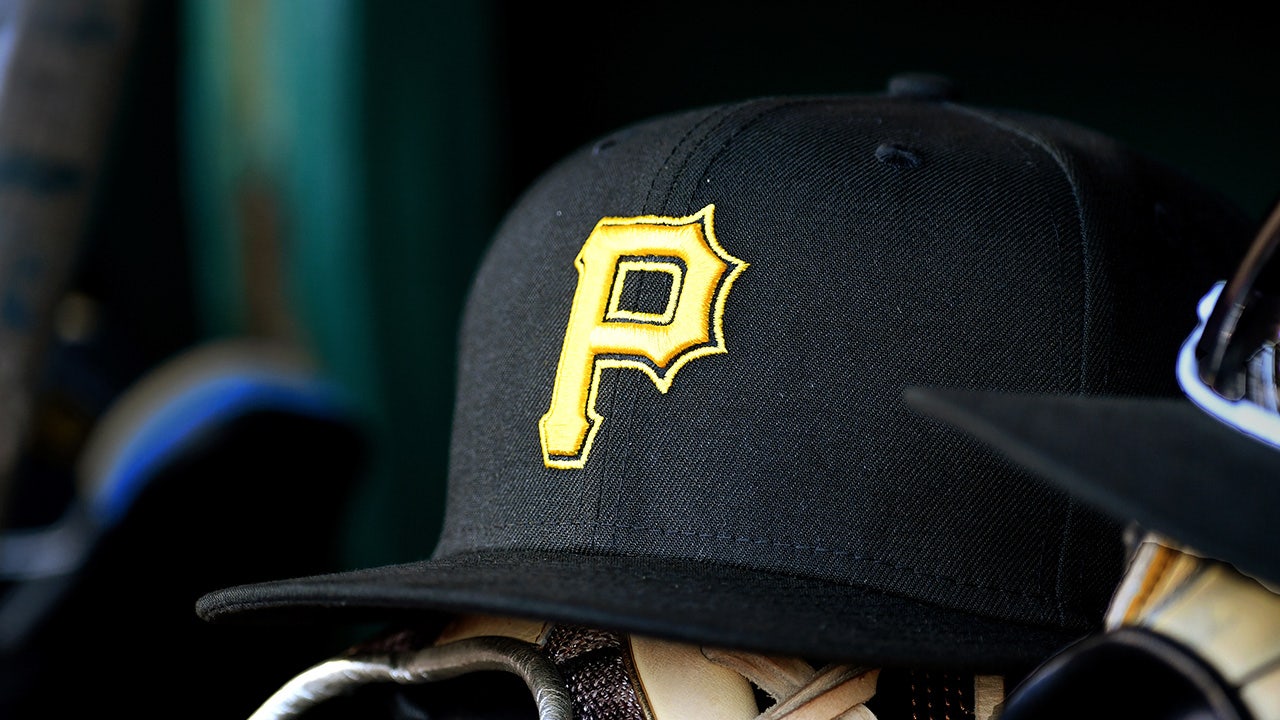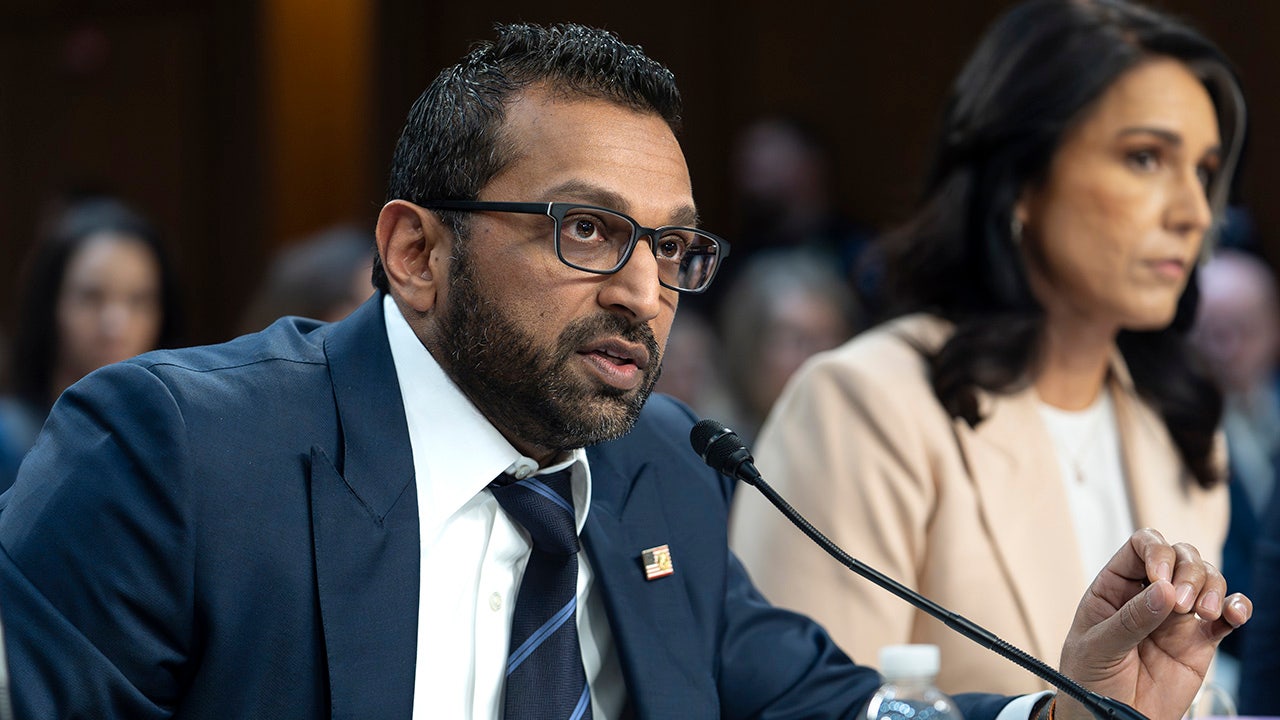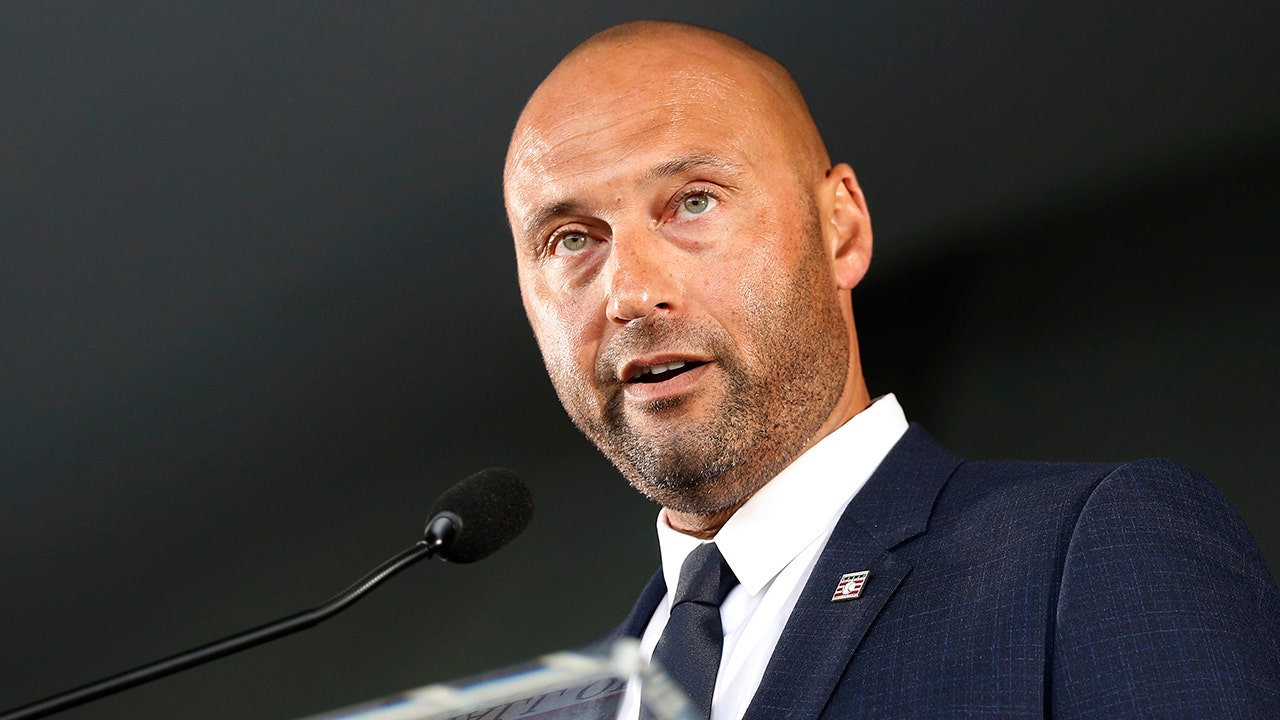AL-UDEID AIR BASE, Qatar - President Donald Trump expressed renewed optimism Thursday about curbing Iran’s nuclear ambitions. He declared that he wanted to make Gaza into a “freedom zone” as well as bolster the Syrian government. And he held out the possibility that he could travel to Turkey to try to secure a ceasefire between Ukraine and Russia.
Trump’s visit to the Middle East has offered a window into an emerging, sometimes contradictory foreign policy doctrine. He has long taken a restrained approach to the use of military power and has complained about the cost of U.S. deployments around the world. Now he appears to be trying to draw to a close various conflicts around the globe while still vowing not to withdraw from the world entirely.
Speaking at the largest U.S. military installation in the Middle East as he stood between a Qatari F-15 and a U.S. Reaper drone, Trump touted his ability to make deals to solve some of the world’s most intractable problems.
“I could settle that up,” he said of trying to halt conflicts between India and Pakistan. “I can settle anything.”
“As president, my priority is to end conflicts, not start them,” he said. “But I will never hesitate to wield American power if necessary, to defend the United States of America.”
Past presidents have traveled with grand visions of the role of the United States as the paramount leader of the international system. Ever since World War II, Washington has portrayed itself as a beacon of freedom, the one reliable arbiter in an unpredictable and dangerous world.
Trump has always chosen his own path on foreign policy, and this week has been no exception. He departed Washington on Monday without having outlined an overarching vision for the trip beyond a desire to strike business deals.
But the deals themselves appear to be the grand vision. And he has taken a business operator’s approach even to the nonbusiness, thorny matters of foreign policy, including long-intractable challenges with Iran, Israel and Ukraine and Russia.
Trump delivered his speech Thursday as he entered the final phase of his trip, with lower-key events on his schedule before he returns to Washington from Abu Dhabi midday Friday. During Trump’s stay in Qatar, he never publicly mentioned his aspiration to accept a luxury 747 from the Qatari government as a gift for use as Air Force One, a move that has triggered criticism from Democrats, ethics experts and even some Republicans.
Trump said earlier Thursday that Iran had “sort of agreed to the terms” of a negotiation and that Tehran would not pursue a nuclear weapon using a uranium enrichment program that Trump referred to as producing “nuclear dust.” In a 2015 nuclear agreement, Iran pledged never to pursue nuclear weapons and accepted strict limits on uranium enrichment in return for sanctions relief. Trump withdrew the United States from that agreement in 2018 and reimposed sanctions.
“They’re not going to be making any nuclear dust in Iran,” Trump said. “And we’ve been strong. I want them to succeed. I want them to end up being a great country, frankly, but they can’t have a nuclear weapon. That’s the only thing.”
The result at times has been discordant.
In the major foreign policy address of the trip, on Tuesday in Riyadh in front of a crowd of U.S. and Saudi business leaders, the president declared that U.S. military interventionism in the region had repeatedly failed and that nations in the Middle East had prospered best when left to their own sovereign impulses. That vision appeared to grant local monarchies a pass on democracy and human rights issues, a past focus of both Democratic and Republican presidents. Trump, in contrast, suggested that the era of U.S. wars of choice was over.
But on Thursday, Trump chose a decidedly martial backdrop for his final stop in Qatar, speaking to troops at al-Udeid Air Base, which has been a major staging area for the U.S. Air Force in U.S. military conflicts of recent decades, including wars in Iraq and Afghanistan and efforts to fight the Islamic State in Syria.
At a business roundtable speaking alongside Qatari Emir Tamim bin Hamad Al Thani earlier on Thursday, Trump said Joe Biden mishandled the Middle East when he was president.
“The past administration didn’t handle the relationship properly, didn’t show the kind of respect that they deserve. And me, I have a lot of respect, and I have a lot of liking,” Trump said.
Trump has expressed skepticism about U.S. allies in Europe and Asia, accusing them of taking advantage of Americans on trade even as they enjoyed the protections of the U.S. military umbrella. And in Tuesday’s address in Riyadh, he said the Middle East would do better with less U.S. military involvement.
Yet over the course of the trip, Trump has also vowed to be resolute in his military support for the countries he is visiting.
“We are going to protect this country, this very special place with a special royal family,” Trump said Thursday.
“We had a president that blew up half the Middle East, and then he left,” Trump said, an apparent reference to Biden’s 2021 pullout from Afghanistan, which continued a Trump initiative from his first term. Washington “spent 10 trillion on blowing up the Middle East, and then he left. Just said, ‘Let’s leave now.’”
The cost of the wars in Iraq and Afghanistan totals “somewhere between” $4 trillion and $6 trillion, including future expenses for long-term medical care and disability compensation, according to a study by the Harvard Kennedy School.
Now that he is back in the White House, “we don’t do that,” Trump said. “We take care of our friends, so you have a great ally in us. And there’s nobody even close in terms of military power.”
Trump on Thursday also repeated his desire for the United States to take control of the Gaza Strip and redevelop it, an entanglement that, if actually implemented, would pull Washington far deeper and more directly than it has ever been into the generations-long Israel-Palestinian conflict. That initiative was seemingly at odds with his vow to reduce foreign entanglements for the United States.
Trump also said he was still holding out the possibility that he could attend talks in Turkey on a ceasefire in the Russia-Ukraine war.
His attendance is probably conditioned on the attendance of Russian President Vladimir Putin - a remote possibility, given Russia’s announcement of a low-level delegation this week.
“I was thinking about going, but it’s very tough because of what we’re doing today and tomorrow,” Trump said. “But you know, if something happened, I’d go on Friday if it was appropriate.”
A short while later, on his way to United Arab Emirates, Trump told reporters on Air Force One: “Nothing is going to happen until Putin and I get together.”
Ahead of his speech, several other acts took the stage. Lee Greenwood - one of Trump’s favorite musicians, whose “God Bless the U.S.A.” has become a staple at Trump’s rallies - sang several of his hits.
Comedian Theo Von came onstage to tremendous applause and began with a series of mild-mannered jokes. “One of the most famous suntans in the world is here today, Donald Trump,” he said. “He sunbathes in a Sherwin Williams.”
Von then veered into racist jokes, mocking of those with disabilities and poking at the traditional dress in this Arab country. It may have a low crime rate, he said, but part of the reason may be it’s impossible to tell who committed any.
“Who did the crime? The guy, the guy in the white!” he said. “Was his name Mohammed? You’re like, yeah, he was. … It’s like a Ku Klux Sandsman.”
The joke didn’t get big laughs, particularly in a section that had Qatari troops.
Then he made a reference to Qatar’s criminalization of same-sex sexual activity, seemingly telling a story about questioning at the border.
“I’m not going to fly across the whole world just to be gay. I’m not in the Navy,” Von said to groans.
When Trump took the stage later, he thanked Von for coming and remarked how beneficial appearing on his podcast had been to his campaign. He noted that he made that appearance at the urging of his teenage son Barron.
Related Content
For a Howard mom of three, earning her doctorate is a family victory
Zelensky says he’s ready to meet Putin; Europe prepares sanctions
Who is Edan Alexander, the last living American hostage released by Hamas?
.png)
 German (DE)
German (DE)  English (US)
English (US)  Spanish (ES)
Spanish (ES)  French (FR)
French (FR)  Hindi (IN)
Hindi (IN)  Italian (IT)
Italian (IT)  Russian (RU)
Russian (RU) 








Comments